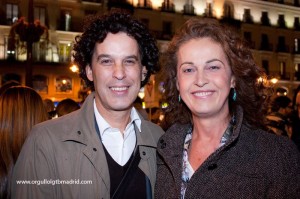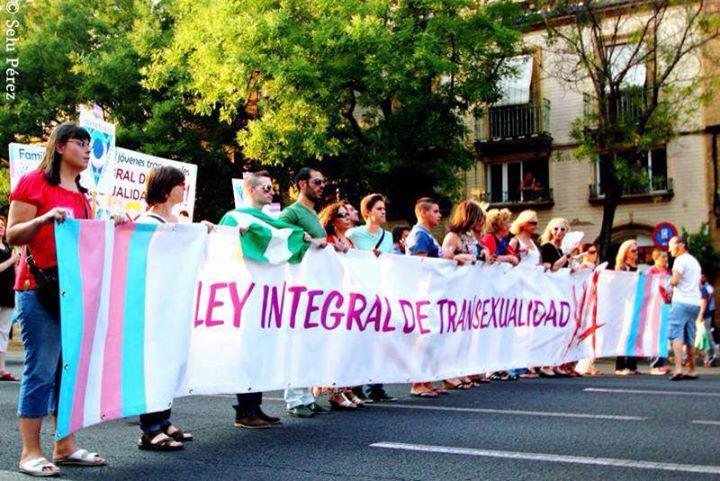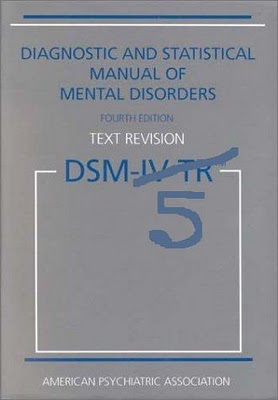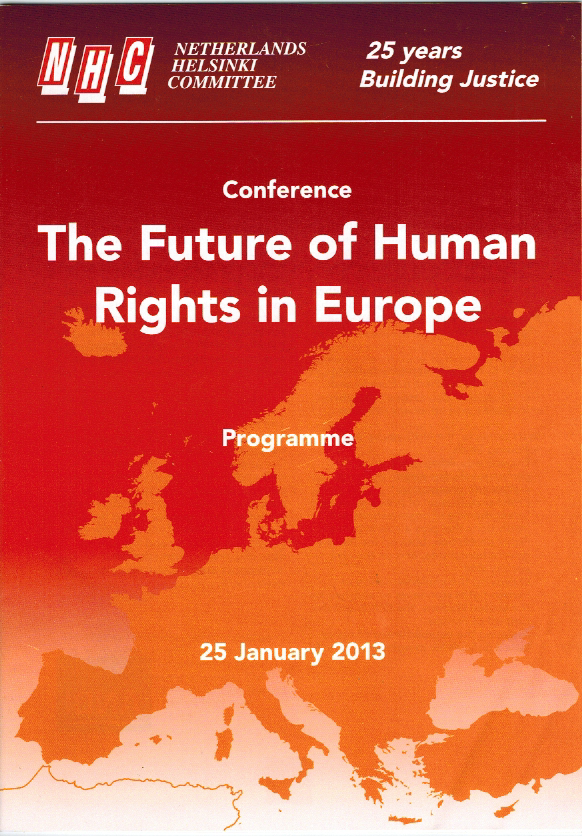Recently Carla Antonelli, actress, trans* activist and social-democrat politician in the regional parliament of Madrid sent in a bill to improve trans* rights in the region. It contains quite some positive elements, but on several important points like, access to health care, it is worrisome and not depathologising.
Precisely in the right wing times with a cold anti-rights wind blowing, in an autonomy and civilian-centred hating climate, it is of utmost importance to not only strive to keep what we got but to further our agenda. When playing the parliamentary game, staying is loosing.
Spain is the second country in Europe to have abolished the requirement of gender affirming surgery, in 2007 as one of the first significant civil rights acts of the Zapatero government – although it took a hungerstrike by Carla Antonelli and others to convince them of the seriousness. The results were good for the times, but not standard setting. Still psychiatric evaluation is needed with a diagnosis gender identity disorder. The clinics are called “Gender-identity-disorder units”. While requirements for medical treatment are strictly not part of the text of the law, there is a requirement to show you have (formally) undergone two years of cross sex hormone therapy.
In the 2007 law no anti-discrimination provisions has been recorded, and in a transphobic and homophobic country as Spain that is an important grief of many trans* People. Attempts to improve the current law into an “integral law” that takes care of all issues touching trans* people is stuck since there now is a conservative majority in the national parliament in Spain. In the regions, the autonomous communities (somewhere between provinces and states), alternatives are being brought to the floor of parliament with a different character, dealing with elements in the power of the region. Thus Andalusia in the South (with Seville as Capital) has a different proposal than Madrid.
The Madrid proposal is attached here as Antonelli-saenz-transexual (Spanish!). The law is meant to eliminate all kind discrimination that may be directed at trans* people. Some highlights are:
- No discrimination on the basis of gender identity or sexual orientation is allowed
- Reparative therapy is absolutely prohibited
- The law would protect the rights for recognised trans* people to the correct gender in municipal administration
- Protection in the workplace
- Undertakes action against transphobia
- Medical transition support for recognised trans* people, be they minors or adults
- Attention or trans* people in education and to educational material
Swear dissonance
The shortest way to summarize my comments on this proposal is: anything that falls short of the Argentinian law on legal gender recognition of 2012 is not good enough. However that is very concise and I will explain this is more detail referring to the proposal at hand.
The Spanish use of transexual is problematic because it creates a separation between those eligible for medical assistance and those not eligible. Because they don’t want the kind of treatment offered or because they cannot – for whatever reason. In the Spanish context this may make sense but still, conceptual confusion is conceptual confusion. Leaving that for what it is, I start with the basic question: who counts as a transsexual? Title 1, art. 3.2.2o reads:
Any person that states to the Community’s authorities through a sworn declaration to experience a stable and persisting dissonance between the morphological birth sex and the felt gender identity. This declaration does in no way imply a medical, psychological or other one that pathologises transsexuality.
So, no external authority has the right to pathologise you, but a sworn declaration by yourself of dissonance/incongruence, mismatch of sex and gender is sufficient. That leaves agnostics and atheist with a huge problem: they cannot and will not swear to any deity. We need to get rid of religion on legislation (apart from legislation that safeguards the right to religion). God or which ever deity has nothing to do with state affairs.
Next there is the problem of auto-pathologisation. Doctors, nor psychologists or therapist are allowed to tell you that there is an inherent problem with your difference, that you suffer form a (mental) illness. One might say: stating your dissonance is not the same as declaring not to be an illness. But why would you have to give a reason then? This means you are not taken serious in your wish if you don’t have a Serious Reason to change. And then: why should you experience dissonance? Why not because it feels better that way? The reason you have to give is the new phrasing of the old Gender Identity Disorder paradigm. So much hasn’t changed, the book’s new edition has a different spelling, maybe a different colour. The emperor wears new clothes …This is no change at all. If you want to prevent pathologisation, you shouldn’t ask people to swear they experience a dissonance. It should be enough to give a written and signed statement, that you identify as or prefer to registered as the other acknowledged gender (since Spain like all of Europe does only recognise male and female). As Pablo Vergara says in his post on this law to be: don’t we trust ourselves then? That we ask (the proposal has been written by two trans* people! so “We” ask it) for a sworn statement?
Sex and gender
Also the law assumes there is a correct, logical, fixed combination of sex and gender. The authors are absolutely not informed by (post) modern theory that demystifies, deconstructs this sex/gender combination. For now I refer to Judith Butler’s excellent analysis in the introduction to Bodies that Matter (1999) where she explains there is no sex beyond or before gender (which as we know also is constructed, not natural or obvious). In different ways Michel Foucault already in 1976 (The will to know) explained how gender and sexuality are constructed, stimulated in a specific directions because of specific power relations, and repressed in other directions. That law doesn’t know this yet, is a juridical failure we must not go with but try to fix – or otherwise circumvent in our own proposals.
Minors
The above explained also applies to minors. If an adolescent or child comes with this wish they need a written statement by a psychologist or doctor affirming “transsexualsm in minors”. The children to who this applies to usually know very well what they feel and who they are. Having an unusual gender identitiy than society expects you may have given a certain genital layout, is only gender diversity, a natural phenomenon. Given the world’s reaction these children may need counselling, psychosocial support to further develop their gender identity and cope with a rejecting society. This also applies to adults by the way: learning how to deal with rejecting society and with internalised transphobia. But a diagnosis of gender dissonance? No.
The biggest problems reside in the paragraphs concerning definitions and access to trans* specific health care and how this is defined.
“The multidisciplinary Gender identity Unit will be led by professionals in health care in in psychological. psychotherapeutic and sexological help that will decide and give the most adequate assistance according to the personal circumstances and state of health of transsexual persons.”
Because what does title II say, on health care service for trans* people? It says all information available should be given freely to who asks for it and all interventions are made with explicit informed consent of the patient. But then: what constitutes treatment? Who decides if certain treatment is available to a patient? What is the “most adequate treatment” (Art. 11.2) and who decides this? The law does not explain how this most adequate health care should be interpreted. Meaning that they leave it to the doctors who are not used to having the expertise doubted or contested. Nor that patients decide for themselves against their professional opinion. Spanish (nor Dutch) doctors are known for their patient oriented supportive approach.
The term “state of health” and also personal circumstances leave open the possibility of a psychologist who because of the (supposed, interpreted) mental health state of a client thinks this person not apt for treatment because of certain aspects of their private life (e.g. they engage in BDSM with gendered roleplay and kink). Mentioned professionals are not guaranteed to be without prejudice and being dependent on a doctor or one unit introduces a bottleneck. If full, informed and prior consent is not well defined and when there is a relation of dependence (doctor-patient), it is an unequal power relation. In case of minors two doctors must be involved which makes the person’s autonomy (and that of their parents or guardians). Given the moral panic that spreads where it concerns children, and the attitude (and the – lack of – knowledge) I am not sure it is a good idea to leave this to two doctors. Normally one doctor decides what is the problem and in compel cases they consult a colleague, but it remains a one person responsibility. So an extra strong requirement is introduced here. That does not sound logical, that sounds like exertion of power, of bad ethics.
Could be worse
Not the best law, not the worst. I think by explicitly legislating against transphobia, by clearly putting in the right to no discrimination this would be very good to become a local law. It has enough merits to be accepted as a national integral law. But please chicas, your health paragraph and some of the basics are a disaster. Change that.
In Spain I now look out for the Andalusian proposal which is better, but experiences more political intrigues in getting the right version on the right tales. More on that when it gets really gets somewhere..








